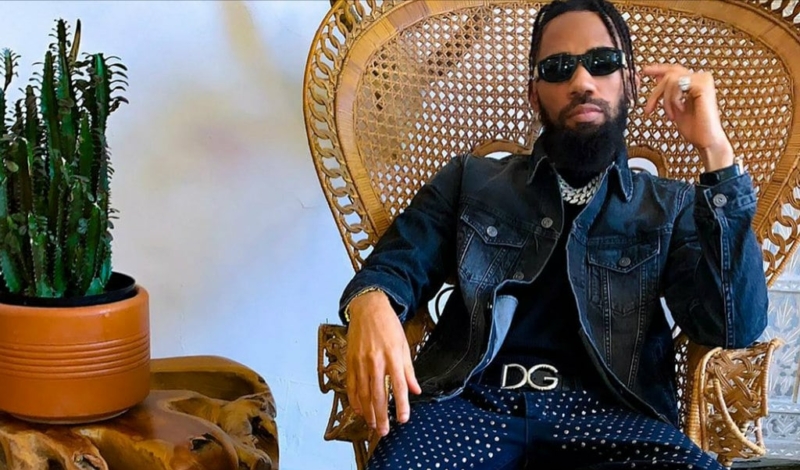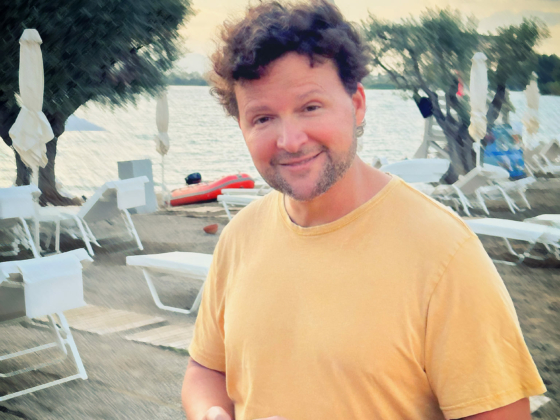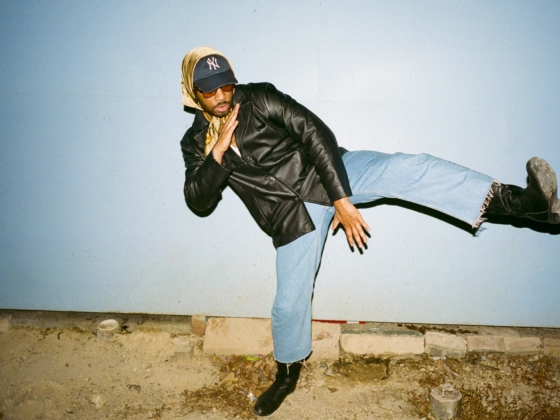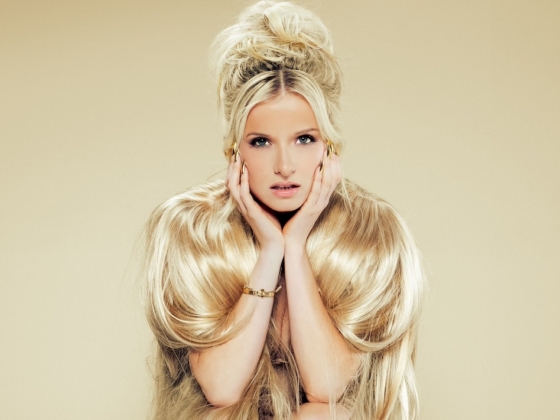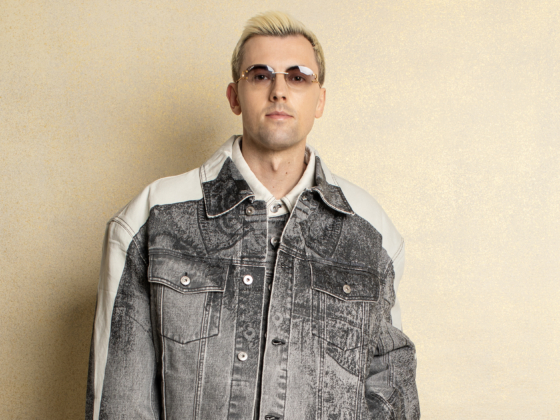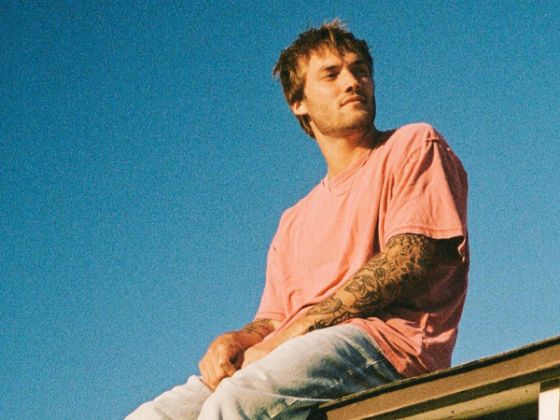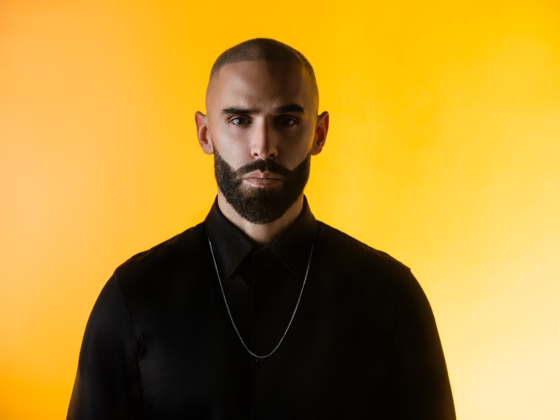For a whole decade, Nigerian music icon Phyno has cemented his place as one of the most influential voices in African Music. Blending hip-hop, highlife, and his native Igbo dialect to create a sound uniquely his own. From chart-topping hits to redefining the boundaries of African music on a global scale, Phyno continues to push the envelope with every release. In this exclusive conversation with Ethan Ijumba, Phyno opens up about his journey in the music industry, the creative process behind his latest projects, and his thoughts on Afrobeat’s explosive rise around the world. He also reflects on staying authentic to his roots while navigating the ever-changing landscape of global music.
Read on as Phyno shares rare insights into his artistry, collaborations, and what’s next for one of Nigeria’s brightest stars.
Ethan Ijumba
Here I am with one of Africa’s most influential artists, Phyno. You are a ten-year veteran in the music industry, known for your unique mix of Igbo and Afrobeats. It’s impressive to see how you’ve navigated the changes and evolution of the genre. Recently, you released your album "Full Time Job," and your latest single, "Back Outside," has also just dropped. It’s an honor to speak with you, the legendary Phyno. How are you today?
Phyno:
"I'm good, my brother. I'm good, man."
EI:
Good to hear! Right now, you're celebrating what has been 10 years into the game, how everything's been changed for you, how everything's evolved for you musically, and how much success you've had with 10 years as an artist. But how exactly does it feel now looking at that decade-long journey overall, just in hindsight for you at this point?
Phyno:
Man, looking back, looking back, I'm just grateful, you know, I'm grateful it's been a long road learning, doing what I love in the process and God's grace standing strong and making music, doing exactly what I enjoy doing. So looking back then and looking where I am right now and how much I've really achieved throughout the years while making this music is something I'm really grateful for.
EI:
How do you feel about the evolution that Afrobeats has seen going from a genre that was only really prominent over in the home continent of Africa to now seeing it just take global worldwide domination and across all radio waves? You've seen people like Rema, Ayra Starr, and even Burna Boy take it to a whole new level. How does it feel because you’re one of the pioneers from the beginning of seeing it from the jump.
Phyno:
Trust me, I feel so happy because it's been a long time coming. We all knew it was going to happen, we just didn't know when it was going to happen, but we knew it was gonna happen one way or the other, we have the most talented people here in Africa. The music we do is so diverse and a whole lot of people like it very much when you listen to the likes of Burna, Wiz, Rema, Davy, like everybody. The way we make music, you can't just box us in the town and just be like, that's what they do. Everybody's spontaneous, and afro beats is where you tend to take music from other cultures and still add it to what you have, and you create something. There are a whole lot of, and one thing about what we make is when you listen to the sounds that come from here, especially the mainstream sound that comes from here, it's always a feel-good time, right? It's always a feel-good sound. It's something that you want to play and it changes, it lightens up your mood. So we always know that it will reach this point eventually, but we just don’t know when. I’m very happy that it’s happening right now and that it’s occurring in my own lifetime, and that’s something to be proud of.
EI:
Do you think Afrobeats will follow a similar trend of blending and fusing with other genres? Afrobeats has already showcased a big mix of influences, and I wonder if it could evolve into an amalgamation with genres like jazz. We’ve seen hints of this potential. Additionally, EDM has also played a role in this blending. Do you think Afrobeats could continue to evolve and mix with other styles?
Phyno:
It's definitely going to and I think it's a good thing. It's not a bad thing, but Afrobeats will be like the mother of any of those subgenres that come out from it, regardless.
EI:
In your own music, how do you maintain the balance between the traditional sounds of your Igbo roots and the evolving genre of Afrobeat? It seems like there’s a clear distinction, much like the difference between rock and roll and rock music. While they share similarities, each has unique characteristics that make it distinctive. Do you find it important to stay true to that authentic Nigerian sound in your work?
Phyno:
100%. That's the only way I retain my identity. Right? That's the only way you hear me and you'll be like, yo, this is where the sound is coming from. We have to give a whole lot of shout-out to the Latin Americans. Once you hear something that comes from that part of the world, you definitely know, this is where this sound is coming from. Because they try their best to retain their sound, and that's what it is. I definitely have to, because I'm selling my culture, I'm selling my tradition, my content. No matter how much hip hop influences my sound, they're still gonna hear where I come from, from my sound regardless so I'm, I'm never gonna switch
EI:
To further speak on that. I once talked to Pheelz about this and I asked him, how it feels to be representing not just your country or your home, but you also have a continent on your shoulders as well, kind of like you said. Do you ever kind of feel that there's a pressure to make sure that what you're doing is not necessarily competitive with others, but something to bring up with other artists as well. But do you ever feel that there's a pressure or an underlying feeling that you have to prove something when making music because you have the whole world now watching you and they're not waiting for you to fail, but they necessarily want to see, okay, what's going to be next?
Phyno:
Honestly, I really love to have fun making music. I understand the competition side of things, but a lot of things have changed from what they used to be. I feel like right now, most songs that have messages to give to the world or to people are the ones that are less marketed. Any record right now can be successful depending on the budget you get behind the record.
EI:
Do you think that it comes with not just the content? We've seen it with two-minute songs taking over more than a five-minute or four-minute song instead because there's been a change in how people consume music? So do you think the same thing has happened with Afrobeats as well too? Cause over here in America, a two-minute song could be the number one song in America, but over in the motherland, it could be a completely different aspect.
Phyno:
Trust me, It's the same thing. That's the era that we all find ourselves in right now. So it's totally different from what it used to be.
EI:
Nowadays do you find it easier to make music compared to when you first started?
Phyno:
It's easier when you want to make songs with no content, every song is not going to be a really good song or a TikTok-worthy song. Sometimes you want to make music that speaks to people and It's very hard to do that in just two minutes. You can make it a feel-good song and cut out the best 30 seconds in the song and make it go viral on TikTok. It can be the number one song, but also some people want to make conscious music and people want to speak to people with their music. You can't just make that in two minutes; so what I'm trying to say is that the real content and the real messages are in music. They start being watered down because everybody's looking for a hit, and also, these hit records depend on the budget behind them. How much are you willing to push and put influencers on it and sell on a record for how long, while radio and all?
EI:
I completely understand and agree. When it comes down to what it is now and where you see yourself going with it, do you have any plans or specific ideas for 2025?
Phyno:
I've been doing this for a while, my fans know what I do and my music. There might be a bit of an adjustment here and there because I still want to get new fans regardless. But I won't lose myself, to get new fans and lose the old ones.
EI:
Nonetheless, you're not going to succumb to the industries; this is the only way to make it or your best way. You're still going to do what you started with.
Phyno:
Exactly. But all of that is the need for collaborations too. Even in the new project, I did a few collaborations with the new guys. So when you do that, they have their own understanding of music. I have my own understanding of music. When you bring it together, you guys can create something magical. So that's where I think I am right now. just learning what I have from my own time and what they have from this time and just making something that is amazing, you know?
EI:
During your collaborations on the album "Full Time Job," you managed to strike a balance between new and established artists. You worked with a mix of rappers, including Chip and Burna Boy, as well as RD, Fave, and Cheque. Did this experience serve as a learning opportunity for you, where you both gained insights from each other? Were there any particular lessons or advice that you learned from them or shared with them that stood out?
Phyno:
100%. So I love learning and I'm always open to sharing knowledge with people. If you wanna listen to what you think I know, I can still tell you what I know if you wanna learn and benefit from it too. But I'm always paying attention because I want to learn new things. Being in the studio with the new guys and artists like Fave, the way they make music and their own understanding of music is totally different but it works for them. How they write music is totally different from how I write music. It's just you just have to pay attention because it's a learning curve…When I'm back to making what I love to make and how I make it, I'll probably be back to what I'm doing. But if I'm I, if I'm coming to your territory as an artist, I have to do what works for you.
EI:
Were there any specific or major takeaways that you now do that stick with you that you learned from them or anything that you now do differently from what you worked on in the album? It could be like a writing technique or producing technique or anything that shows how you finished a song or look over it.
Phyno:
Honestly, one thing I think I learned was just keeping the music short. Honestly, if I know how to make a song in a minute and 30 seconds, I will do that. As long as it's not conscious music.
EI:
How does it feel to do that when now doing that? Because you’re from the era where you make at least 4 minutes or 5 minutes is even a little bit pushing it too. But now a minute and 30 seconds is too much.
Phyno:
Trust me, that’s what I learned while working on this project. I've tried my best to keep things simple. So, when it comes down to it, do you think you’ll still create both shorter and longer songs? Ultimately, the decision is yours regarding how you want to produce and release your music.
EI:
Do you feel that you’ll still occasionally write longer songs, especially if you have a meaningful message to convey? Or do you prefer to keep things shorter and focus on improving specific aspects while ensuring that the lyrics remain impactful?
Phyno:
Definitely. I think I’ll continue to create longer songs, but they need to come from my own creative process—my own style. Sometimes I want to rap or address a particular issue. I can create music that is conscious and effectively conveys my message. I don’t want my songs to be short if I still have more to say. You understand what I mean? I want to express my thoughts completely to ensure my message is clear. The good thing is that the first round of songs can just be part of the album. What you hear may not necessarily be the tracks I plan to promote as major singles for the album.
EI:
When considering what you want to achieve in the next 10 years, it's important to reflect on your veteran status. You've been in the industry for a long time and have reached a significant level of recognition in Igbo rap. So, what do you envision for yourself over the next decade? Are you interested in exploring new genres, experimenting with different sounds, or collaborating more with the younger generation of artists? Would you like to focus more on touring, or do you have other priorities in mind? It's essential to outline what you want to accomplish in the next 10 years. Additionally, think about your legacy—what do you want to be remembered for after a career spanning 20 years? That’s a considerable period in any field. What do you hope the next decade will look like, and how do you want to be seen when it’s all said and done?
Phyno:
Honestly, I want to do this as long as I can do this. It's probably going to get to a time when I won't be as consistent as I am right now. But then again, this is something I've done almost my whole life. I started off as a music producer. I worked with a whole lot of people, then I started making my own stuff. So this is something I've done my whole life and I still enjoy doing it. So I'm not gonna say, I'm gonna retire in the next 10 years. No, I enjoy doing it, but I know that there'll definitely be a time when I won't be dropping out. It won't be every year or two years. My legacy will always remain what it's always been, which is I just wanna be the guy that everybody knows who sold his culture to the world and represents my people, my tribe, the Igbo culture, and that's what I bring to the table. And the guy that made amazing music from his rap songs to singing, and that broke the barrier with the language regardless. If you listen to my songs and you're like, okay, even though I can't hear what he's saying, I can feel the music, because that music, you don't need to hear the language to feel it most times too. So that's really what I want my legacy to be. Let's see, let's see how long I can take this honestly. I just don't want to say some things, but let's see how long I can take this.
EI:
You're absolutely right. I understand that, just like with any popular show, every good series must come to an end. You don’t want to be like "The Simpsons," where they keep cranking out episodes, and, no disrespect to the creators, but after a while, some of the content may not be the best. At some point, you might look back and think, "That wasn't so great." There are also some artists who become legacy acts. They continue touring and performing without ever retiring. While they may not release new studio albums, they still remain active and engaged with their audiences through live shows.
Phyno:
Honestly, I feel like I'm gonna be that type of artist, right? Because apart from me I'm mixed with a whole lot of genres. There’s a genre of music called Highlife music in Africa, right? That's the music in the community where I grew up, right, and that music that can last a whole lifetime. Even when I'm 70, I can still be performing Highlife music. But I just want to do this as long as I can do it, cause I love it. Not just because I want, I have to, no. I want to do it because I love it.
EI:
And then, speaking of genres, highlife is certainly recognized as a genre in Africa. However, Afrobeats is currently the pop music of the continent. Given this, are there other genres that are emerging but may not get the recognition they deserve? For example, highlife has been influential, and genres like Zouk, Fuji, and Soca also have their place. Do you think there are any genres that, while they may not be the next Afrobeats, will still attract more interest from people and gain more visibility as they continue to grow?
Phyno:
Trust me, a lot of styles have already come out and they're big and are not Highlife music, but because they came out from Africa, people call it Afrobeat music. Some Highlife music has come out and is big. Asaké doesn't do Afrobeats but a fusion of Fuji music and stuff but everybody calls it Afrobeats. People like my record can call it Afrobeat if they want to but I think if I think it's even leaning more on Amapiano fusion everybody calls it Afrobeat regardless.
EI:
Do you feel that your music should specifically reference elements from your culture, or do you want to focus on Igbo rap as a whole? When it comes to getting your music recognized, what would you prefer to be called?
Phyno:
Honestly, I haven't really thought about it. I create music simply because I follow my heart and get inspired by different genres. For example, I'm considering naming my style "Afro Highlight" for Afro Rap. I lean a lot toward Highlife music as well, so "Afro Highlife" feels fitting.
EI:
With that being said, when it comes to the overall music from Eastern Africa and Nigeria, there are numerous artists and influential figures that have emerged from these regions. They have made significant contributions that have created groundbreaking moments, encouraging more people to explore Afrobeats and other genres of African music. What has your experience been like coming from that area?
Trust me when I look back when I was coming up and right now, it's something really special. The guys down there are doing a whole lot of things. Flavour an artist who does Highlife music, he's like one of the pioneers out there. The guys leading the line right now when it comes to Highlife music that's like a major genre down there. One special thing about the Eastern part of Nigeria, too, is that they do hip-hop music, right? But the guys coming out right now, make a whole lot of drill music, they call it the Igbo drill. The way they flow on this beat, their lyrics, the flows, the cadence on the beat and they are really doing something special that when you hear it's gonna blow your mind.
EI:
So when it comes down to it, what exactly do you see being the next, I don't wanna predict too much onto certain artists exactly, but I guess in this case we might as well since we're going to that. But who do you see really taking the new wave and the new generation of where African music is going to be?
Phyno:
Okay, I mean, you guys already know Rema and Ayra Starr, so I think they are big already. So there's this kid called Alpha P. He's amazing, you already know Chek, who was on “Back Outside.” There's a whole lot of new guys. There's this guy that crops the project. You need to check it out. His name is Lona. He's really amazing. He has a solid project. You already know FAVE She dropped a project as well. FAVE is amazing. So these are like the new wave of artists that are gonna come out and do something great. There's another guy called, I think, Paves or something. Then the guy I told you about, Jerrick and Aguero Banks, both of them are special too. Every artist I mention right now, they all, they've been, I've been watching their come up, and they've done something special in the last two years. Between 2023 and 2024, they've solidified something.
EI:
Honestly, it's like you can only hope and see that the new wave is definitely going to not just carry the flag, but also it's carry the torch into something that you're going to see more of. So it's obviously going to be a great thing to see from like just the audience aspect on my end. And I guess from your aspect, from the artist who's now seeing the growth and change of how it's been going.

